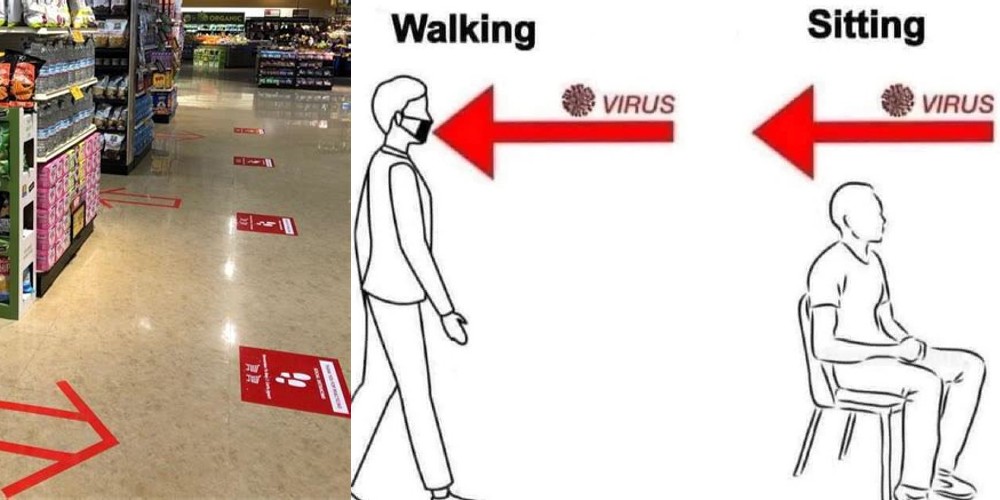Dr. Simon Goddek is quickly becoming one of the most popular medical professionals on Twitter. He doesn’t just drop a snarky comment or quick link to an interview clip like the vast majority of influential doctors. He takes his time to put out real content threads. If you use Twitter, I highly recommend following him.
His latest thread is a big one. In it, he lists 20 (technically 21) examples of the various lies, gaslighting, propaganda, and insults used to control and manipulate the population from the birth of the Plandemic until today.
To those who do not have access to Twitter, you should be able to view the videos here on an incognito browser:
THREAD: Remember when they cancelled millions of cancer screening appointments, leading to a significant increase in avoidable cancer deaths, while they performed ridiculous dance routines instead?
Let me show you 20 more pieces of evidence proving that Covid was a big hoax.
pic.twitter.com/qZpC801MVz
— Dr. Simon Goddek (@goddeketal) July 31, 2023
#2. Remember when the CCP
released CCTV recordings showing people collapsing on the street like sacks of rice, catching themselves with their hands just before impact, and then shaking spasmodically? They said it was one of the Covid symptoms and nobody ever questioned it. pic.twitter.com/y8K9ioWiXs
— Dr. Simon Goddek (@goddeketal) July 31, 2023
#4. Remember when they separated cashiers and customers with large Plexiglass screens, yet the cashier touched all the products the customer then took home? pic.twitter.com/9VROchmlum
— Dr. Simon Goddek (@goddeketal) July 31, 2023
#6. Remember when the flu totally disappeared in 2021, and they said it was simply because Covid was more transmissive? There's nothing simple about eradicating influenza from 100+ countries in just 28 days. pic.twitter.com/5owVHfw7dd
— Dr. Simon Goddek (@goddeketal) July 31, 2023
#8. Remember when you were considered a social menace if you walked in the opposite direction of the arrows in supermarkets? I still haven't completely understood the logic behind it, and I wonder how many lives have been spared by this measure. pic.twitter.com/dzUscFVLXx
— Dr. Simon Goddek (@goddeketal) July 31, 2023
#10. Remember when they said that masks were reducing transmission, but neighboring states (e.g., North Dakota with lockdowns and a mask mandate, South Dakota as a free society) with and without mask mandates showed similar amounts of 'cases'? pic.twitter.com/VDlPNIRcpj
— Dr. Simon Goddek (@goddeketal) July 31, 2023
#12. Remember when 'public health experts' such as @DrLeanaWen asserted that the vaccines worked, yet claimed that the unvaccinated still posed a threat to the vaccinated? pic.twitter.com/4edDoRgETd
— Dr. Simon Goddek (@goddeketal) July 31, 2023
#14. Remember when people like @oatlia and @R_H_Ebright wanted to silence those with differing opinions and exclude them from society, instead of seeking a substantive dialogue on an equal footing? pic.twitter.com/3mImvlLuoi
— Dr. Simon Goddek (@goddeketal) July 31, 2023
#16. Remember when @BillGates said that the investments in the Covid 'vaccines' were his best investment ever? It's quite obvious that he knew what was going to happen, considering he invested about $50,000,000 in BioNTech, a company that until then had only reported losses. pic.twitter.com/xvPvX38JzB
— Dr. Simon Goddek (@goddeketal) July 31, 2023
#18. Remember when the mainstream media blamed the unvaccinated for the deaths of vaccinated people, asserting it was because they were not vaccinated themselves? If a treatment does not work, it is simply illogical to blame those who rejected the treatment for its failure. pic.twitter.com/nGdW3Sc0ZI
— Dr. Simon Goddek (@goddeketal) July 31, 2023
#20. Remember when I got de-platformed from Twitter for speaking out? Well, I'm back, and I won't let them silence me again! If, like me, you are not ready to forgive, I invite you to follow me (@goddeketal) and enjoy my daily content where I expose those who did this to us. pic.twitter.com/o6RnZnqLyu
— Dr. Simon Goddek (@goddeketal) July 31, 2023
There may be very little real-world benefit for those of us who can say, “told ya so,” but it still feels good knowing we weren’t crazy. Unfortunately, the fact that we were right means hundreds of millions of Americans made horrible mistakes. Those mistakes will have repercussions for years, perhaps decades.





Yes, I remember it all. It seems there still may be a few good doctors out there, and if I hadn’t given up on Twitter years ago, he’d get a follow. Another good doctor was Dr. Zelenko. In an interview during the plannedemic, he gave the recipe for his now famous Z-DTOX that you now advertise. My wife and I have been on it ever since. We attended a funeral at the height of the COVID scare (only in a RED state could that gathering have happened). A few masks we visible, here and there, but hands were still shaken. I found out from my daughter-in-law about a week later (who was calling to see how my wife & I were doing) that nearly everyone in attendance was now sick. My wife and I just looked at each other. “Not even a sniffle.” was my reply.